Since April 2019, in response to and promoting the Agenda 2030 Sustainable Development Goals (SDGs), WHAO has expanded its environmental protection program in Newark, New Jersey, United States, to integrate sustainability into elementary school classrooms.
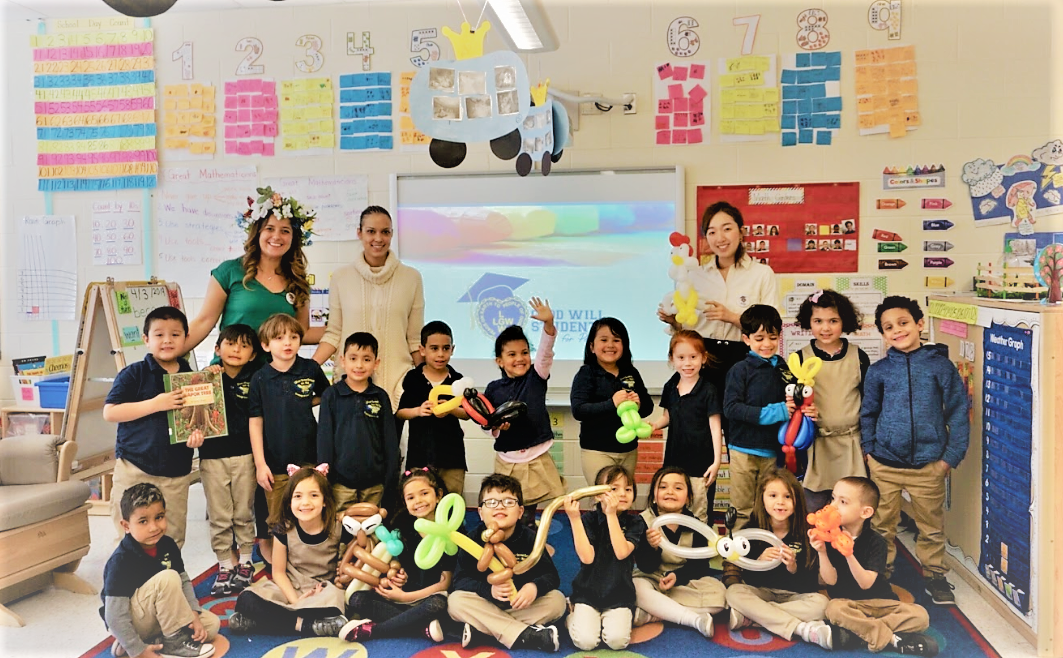
During April 17th to June 7th, 2019, WHAO and the Legion of Good Will organization once again partnered together to develop the early childhood education project titled “Good Will Student for Peace – Green Lesson”. The LGW’s “Good Will Students for Peace” program had more than decade long history, and incorporated WHAO’s “Green Lesson” to expand its curriculum this year.
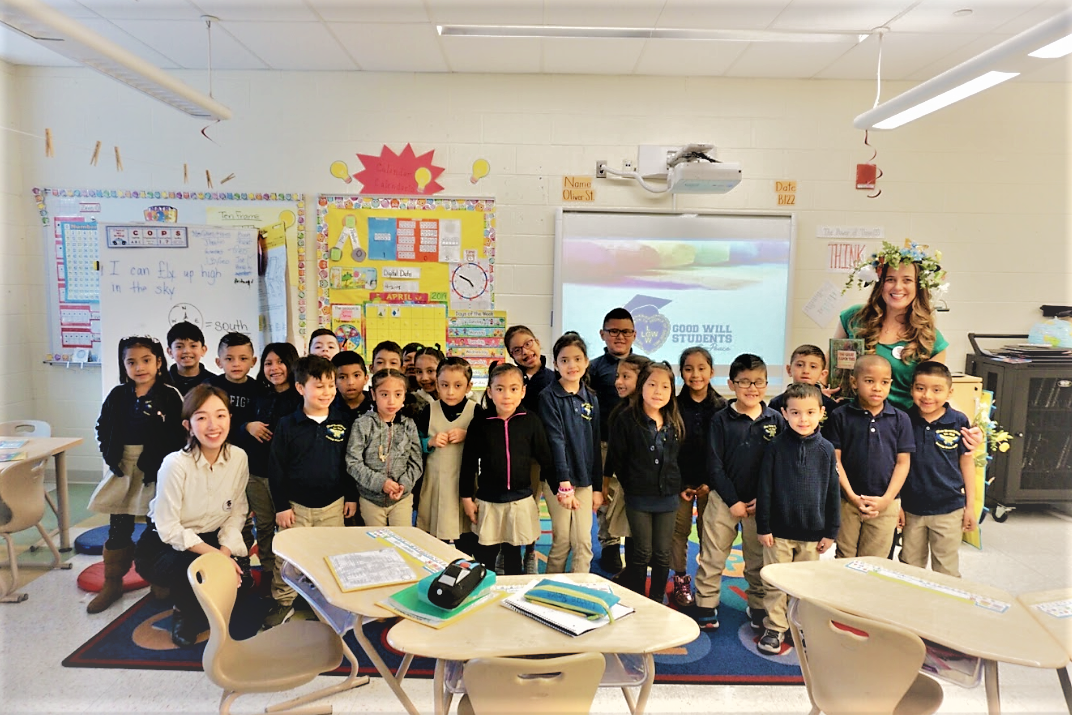
The course aims to integrate character-building activities and environmental awareness into early childhood education, into the classrooms, lifestyles, families and communities. The beneficiaries of this program are around 300 K-2 students and their families in Newark, New Jersey.
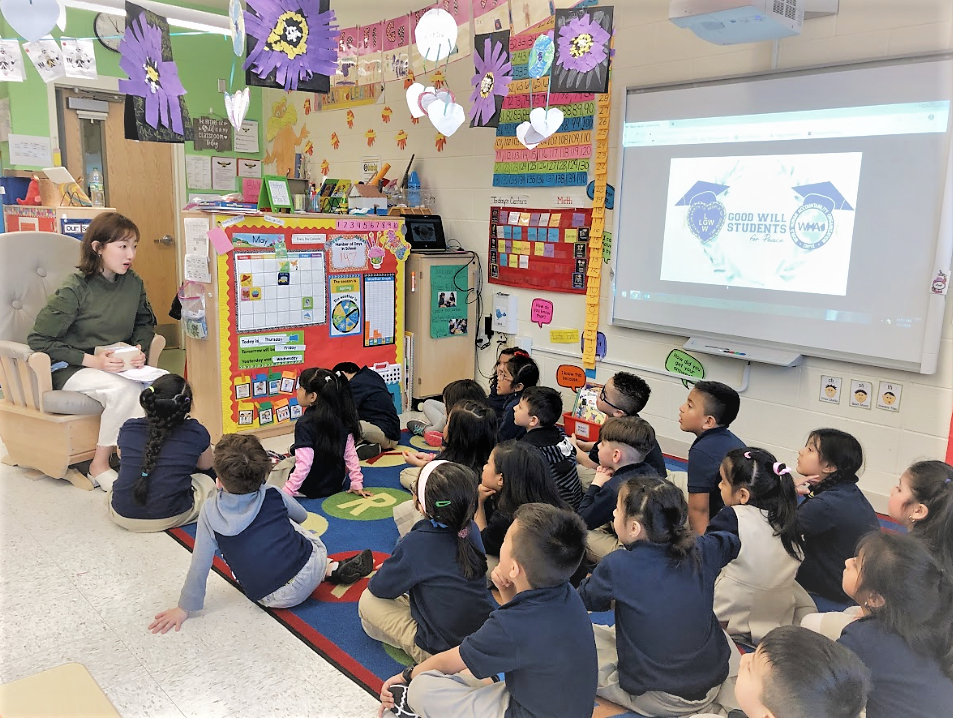
Sara Dong(left in the photo above), WHAO's Project Manager, was invited by the Legion of Good Will to become a Special Teacher at the Oliver St. School in Newark this year. The theme of this year is "Protect our Mother Nature," and the “Green Lesson” was also included in the school’s curriculum during this academic year.
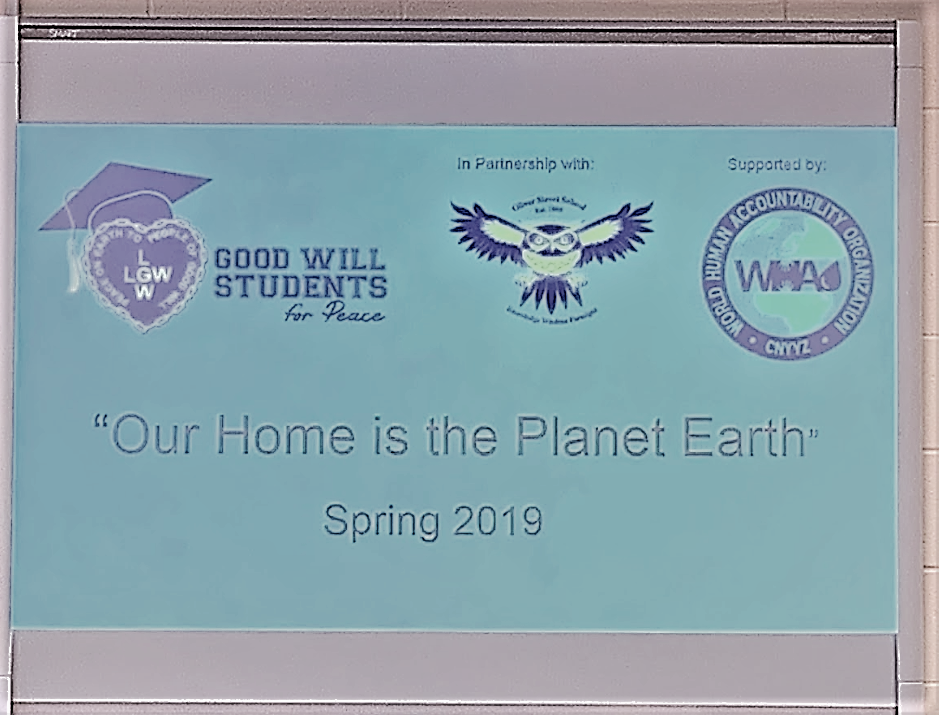
Green Lesson was a series of courses that focus on raising people’s environmental awareness by showing the possibilities of green lifestyles in their daily lives. Since the early childhood stage is a crucial period for the development of thoughts and behavioral habits, let the children develop environmental awareness in the subconscious, recognize the relationship between human beings and the environment, as well as the rules of the food chain, which are very beneficial to the future development of the new generation and the world.
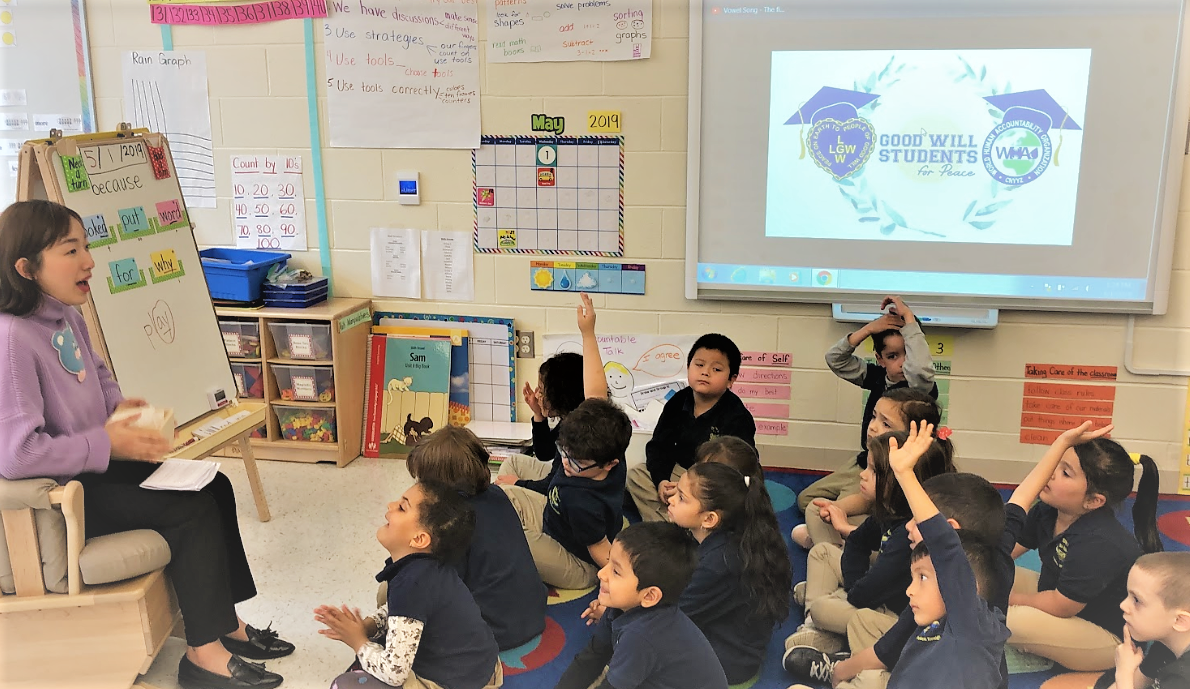
91% of disposable waste has not been recycled, which translates to 6.3 billion metric tons, will become plastic waste in 2019. Plastic bags, cups, bottles, straws, and more all add up to the global waste problem affecting individuals and communities across the world.
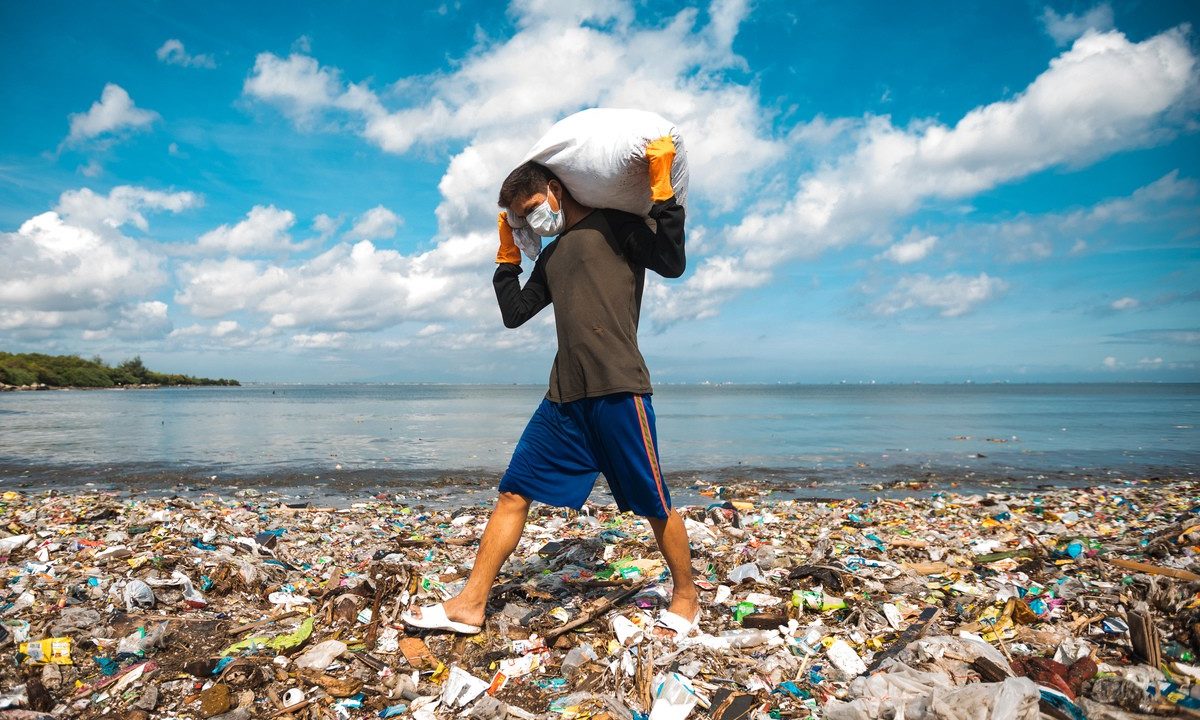
The World Human Accountability Organization (WHAO), a leading non-profit organization based in New York, is seeking to put an end to disposable wastes and promote greater sustainability around the world to accelerate achieving the sustainable development goals.
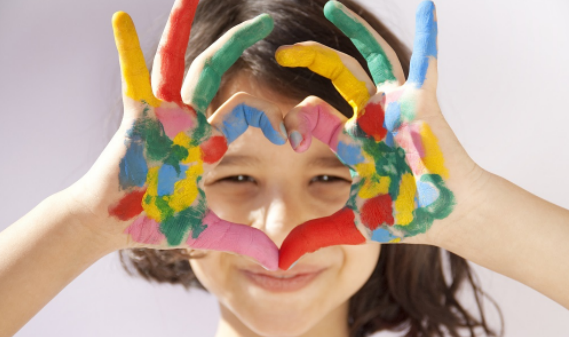
Studies show sustainability can help minimize operation costs and when taught to students through hands-on experience, can boost performance in the classroom. Outside of helping with early childhood education, positive sustainability can also promote a greater sense of global citizenship in future development.
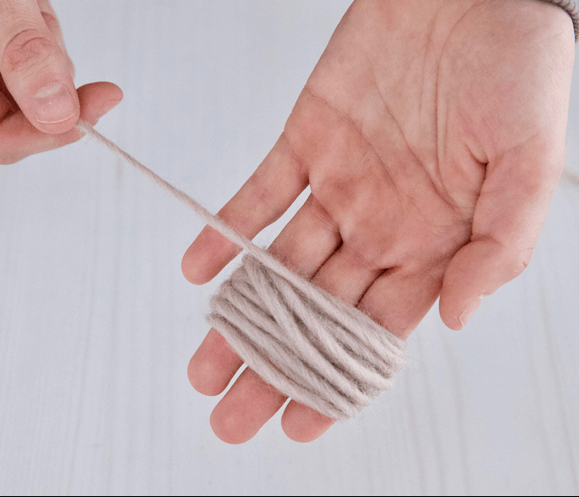
Designed by WHAO, the “Green Lesson” taught about compost materials, waste sorting, and how to make reusable handicrafts for homes and schools, developing a self-conscious environmental awareness and sustainable habits. One of the key courses is to teach students how to make reusable natural wool dryer balls, using organic wool roving from farm, old stockings, and essential oils to make environmentally friendly, 100% natural, degradable, and recyclable dryer balls. These balls can replace liquid softeners and disposable dryer sheets, expressing sustainability and the benefits of using natural materials to students, schools, and the communities.
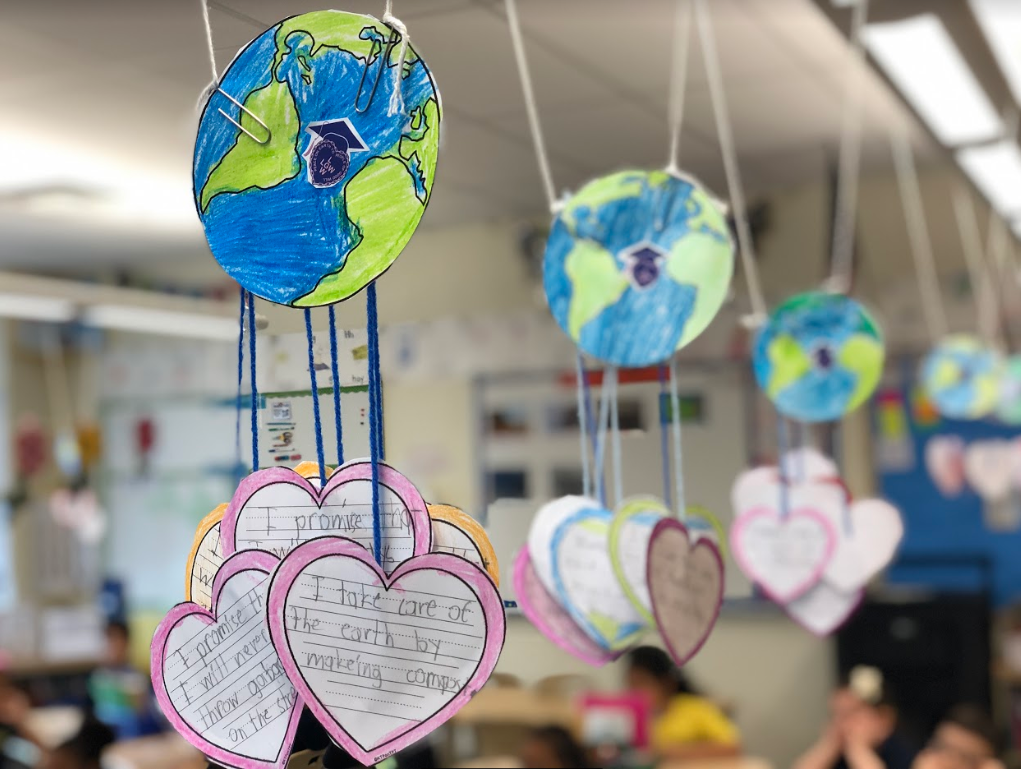
The two organizations worked together to make the curriculum more diverse and interesting for the students. The Green Lesson consists of diverse environmental lessons and hands-on activities on different themes every week.
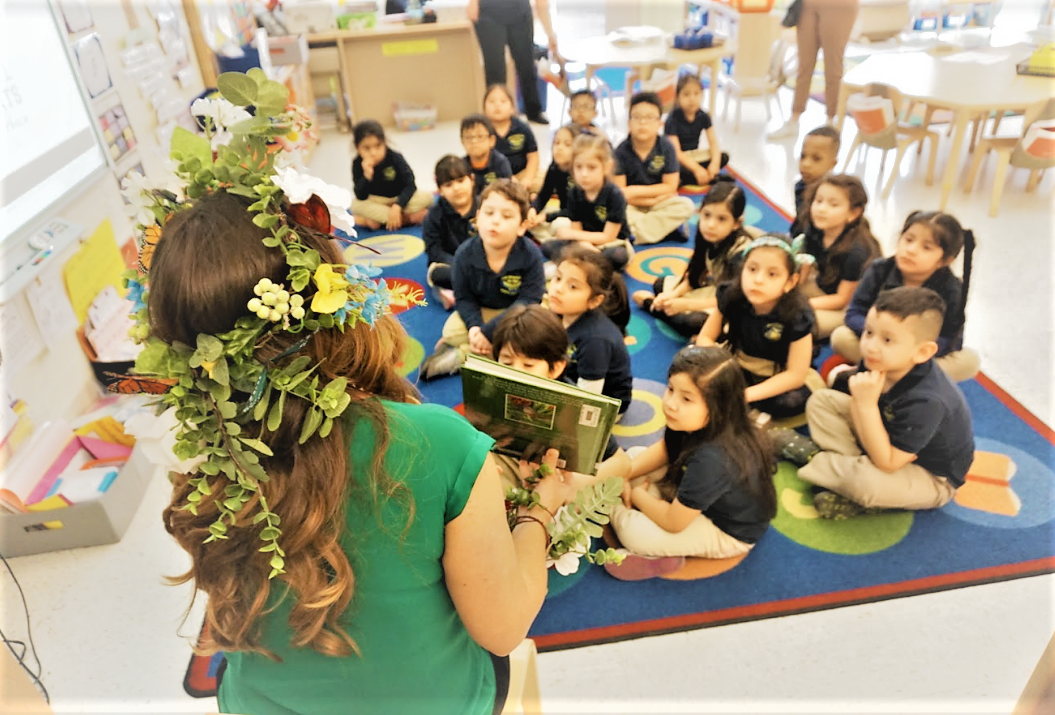
The 1st week began with a fairy tale book for children to learn about protecting the environment and rainforests, the book is called "The Great Kapok Tree." Students learned about the importance and their responsibility of protecting the mother nature.
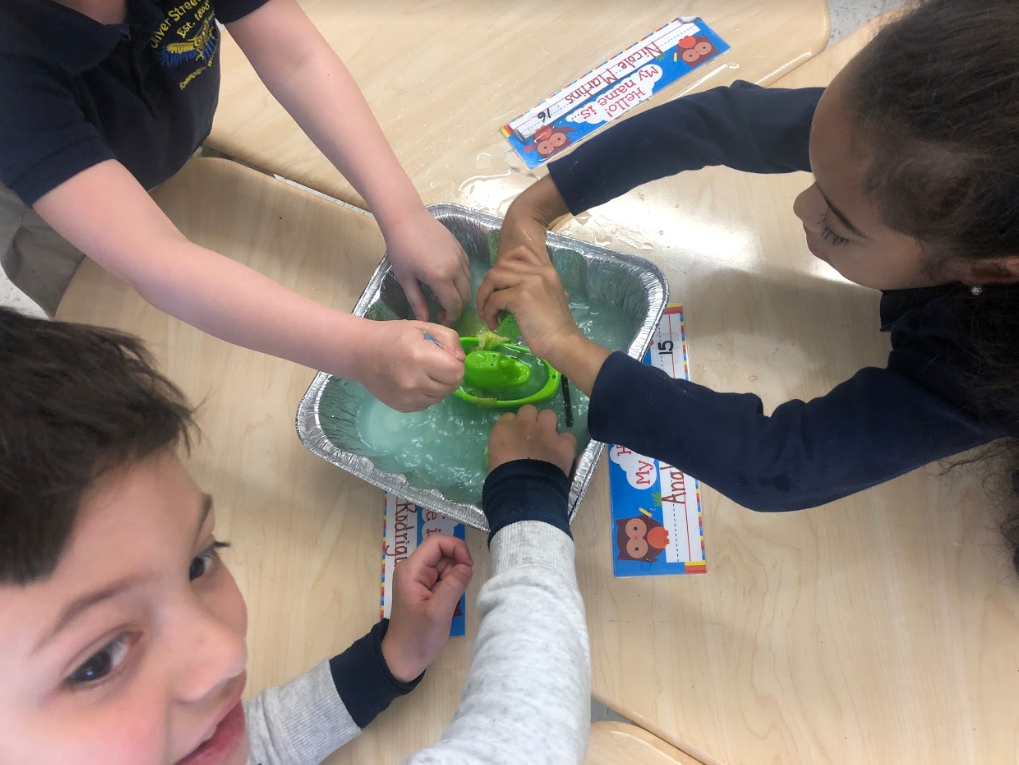
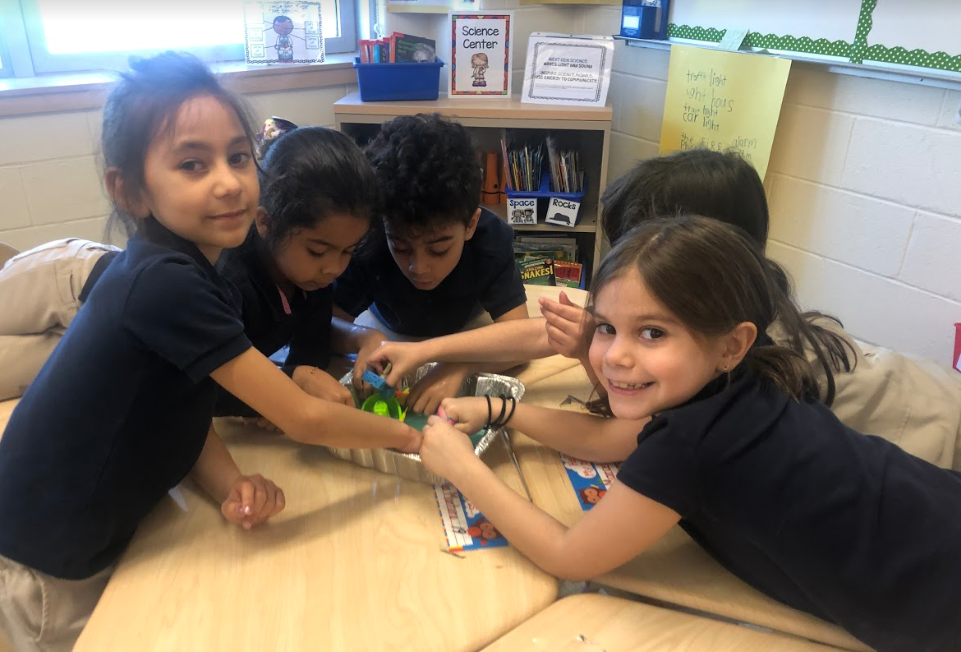
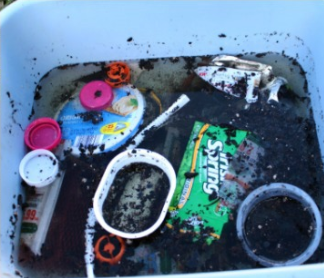
The 2nd week has an experimental activity called “Clean the Polluted Water”. Each student filled a bin of clean water and then throw trash, food wastes, vinegar, and oil into the water. Then, with no given resources, the students were asked to clean the water, demonstrating the challenges of cleaning the environment after it has been polluted. This raised the awareness of causing and managing waste for the children, leaving one boy commenting “I will never pollute again!” and another girl “If we keep throwing trash into ocean, by 2020, the ocean will have more plastics than fish!”
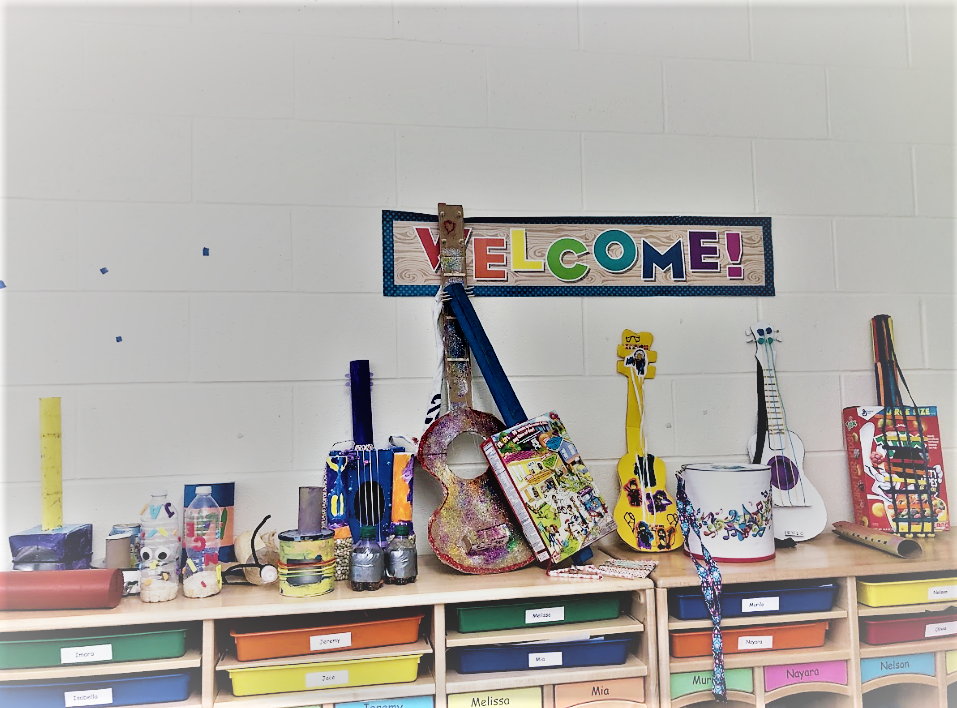
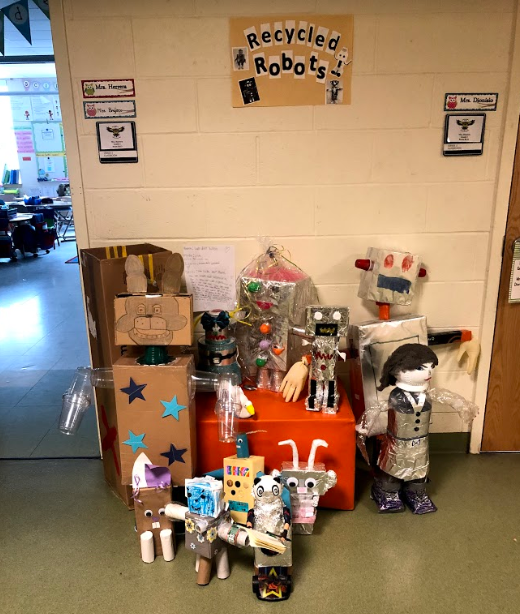
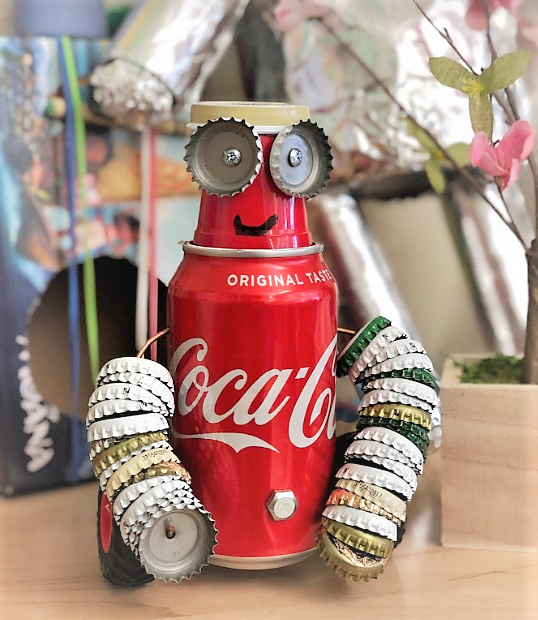
The 3rd week is an upcycling craft activity that transforms plastic wastes into something reusable, such as musical instruments, pencil holders, piggy banks, and robots. The students turned the disposable wastes into reusable toys or tools and are now displaying in the classroom, hallways, and in their homes to inspire their communities and families.
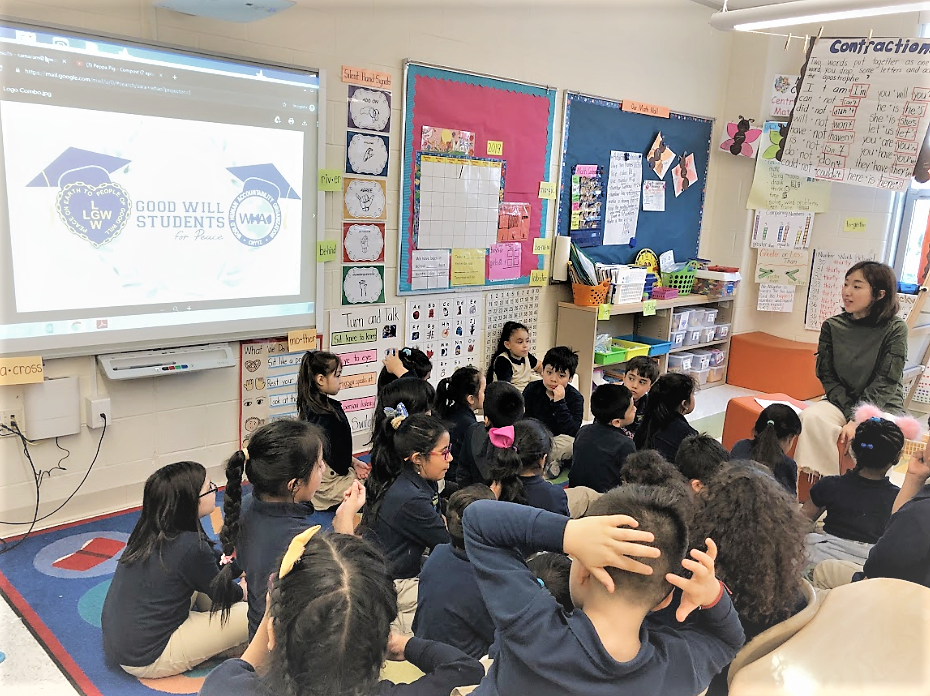
The 4th week began the other part of the lesson, started with an interactive quiz and lesson from Sara on the environment and the consequences of waste. She usually started each class with the same question: “What does it mean to be green?” and explained being green means drawing on two sides of paper instead of just one! Being green simply means thinking of new ways to reuse things.
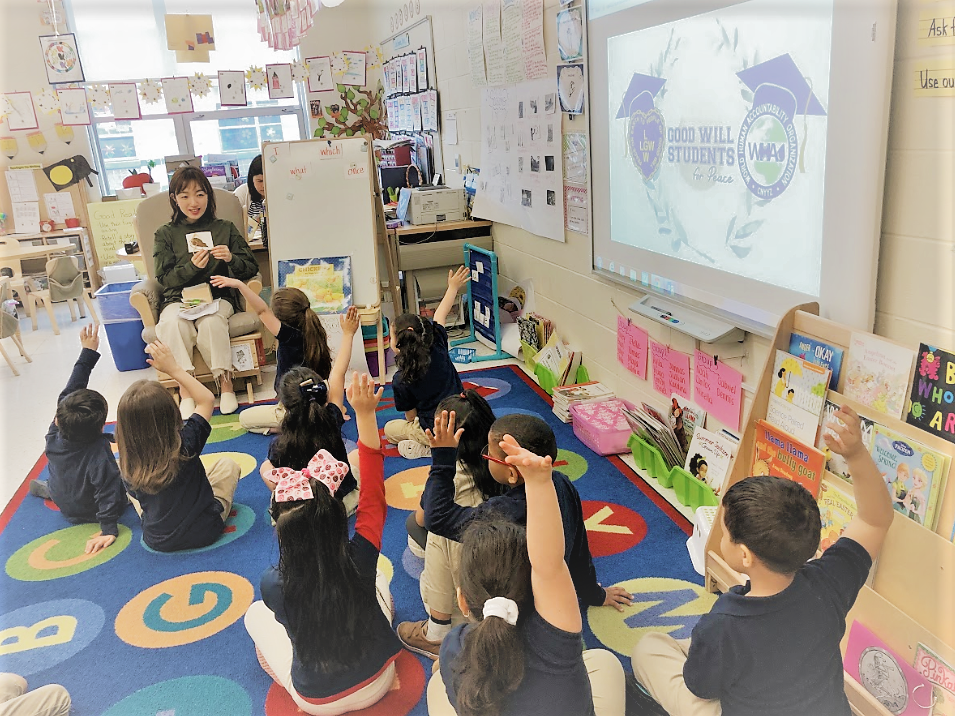
Then Sara made a compost quiz for the students, testing about compost material quiz, she stapled different wastes on each card with ‘yes’ or ‘no’ on the back of each card, she let the students raise their hands for voting, which helps the students to better understand whether each waste is compostable/degradable or not.
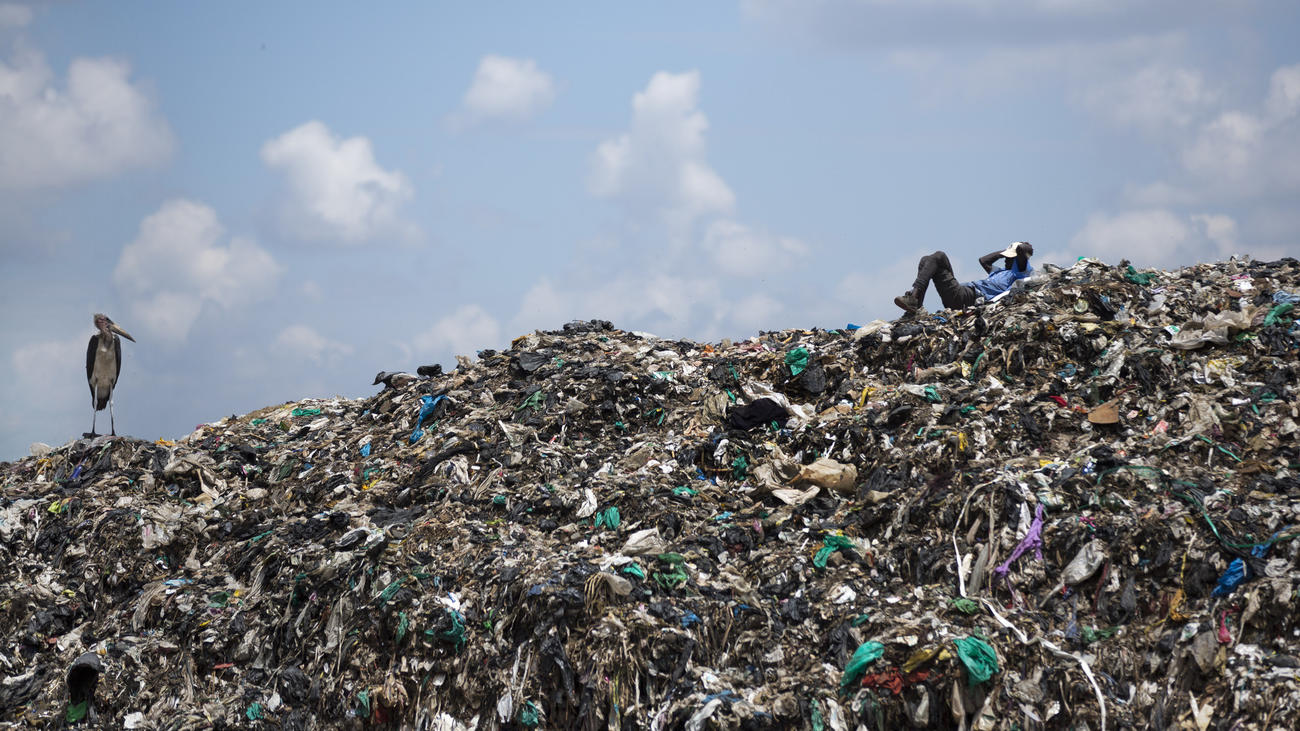
Plastic waste takes at least four hundred years to break down into our land, harming our water, land, people, and animals, leading to illness and bad practices. Statistics showcase this problem further: (Taking U.S. as an example)
By 2050, there will be 12 billion metric tons of plastic in landfills. 35,000 times as heavy as the Empire State Building
Americans only recycle 30% of waste. 80% of products are used and thrown away
The US accounts for 5% of the world’s population, but 40% of the world’s trash
The average American leaves behind 900,000 tons of trash in his/her lifetime for future generations
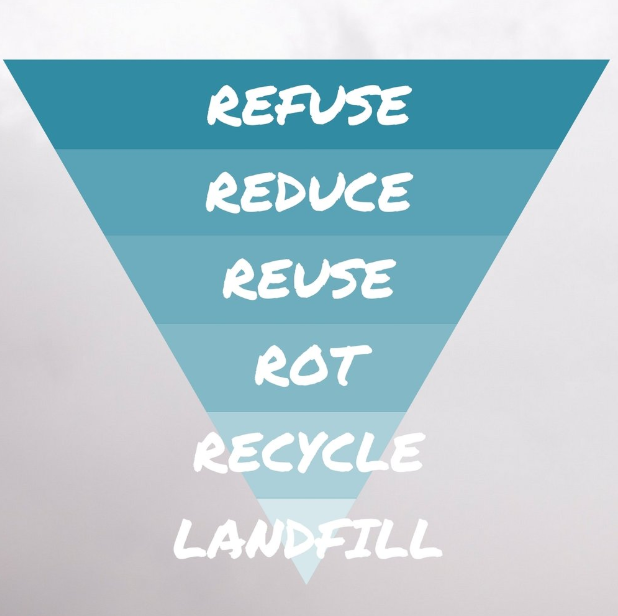
There are five ways to help the environment, in which we call it “5R Principles”:
Reduce
Reuse
Recycle
Replace
Refuse
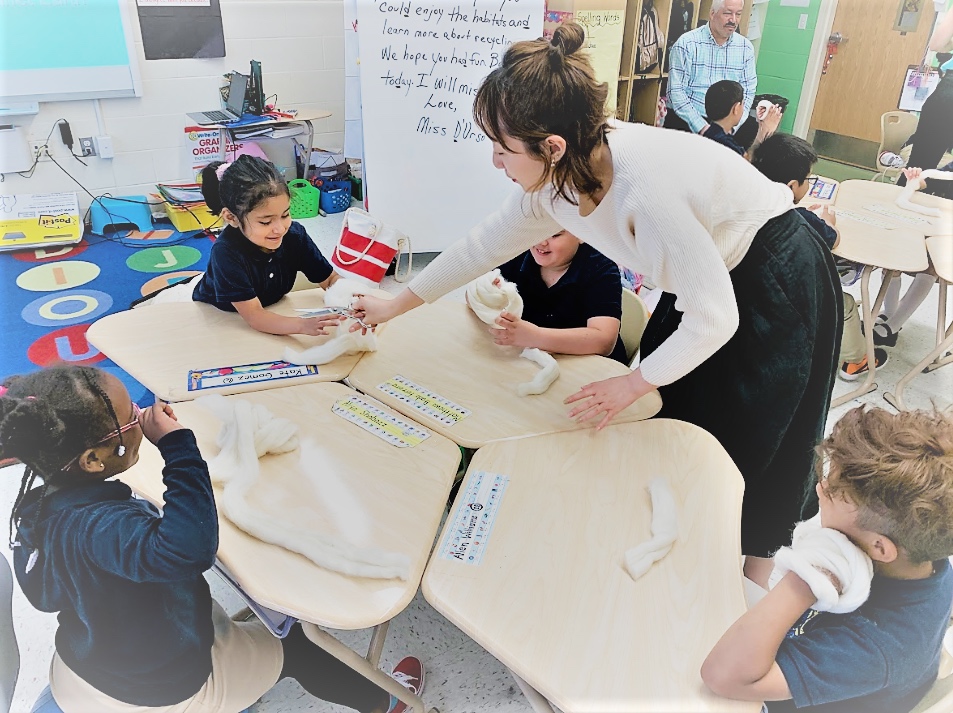
This was shown in the next lesson where the students made reusable wool dryer balls. Sara explained, instead of using one-time disposable dryer sheets and harmful chemicals to dry and soften clothes, families can use these natural laundry balls to keep their clothes fresh and the environment green. After all, clothing is an important essential that touches our skin every day, which impacts on both our body health and environmental health.
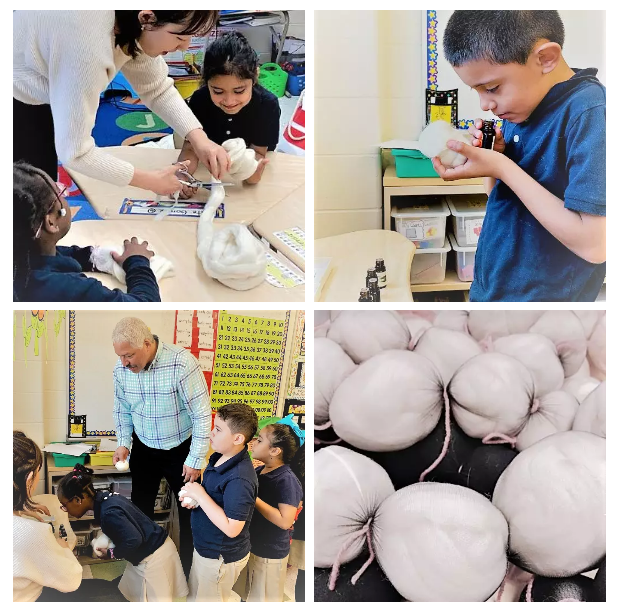
After explaining and demonstrating how to make the natural laundry ball, students got up and made their own. This is the first-time experience for most students to touch a real piece of wool. They rolled and helped each other to finish rolling each wool roving into a ball. At the end, they selected their favorite scent of essential oils, orange is the most popular one! Afterwards, Sara took all the wool balls home, where she tied it in old stockings, threw it into the washer and dryer, and round and stiff wool dryer balls are finished!
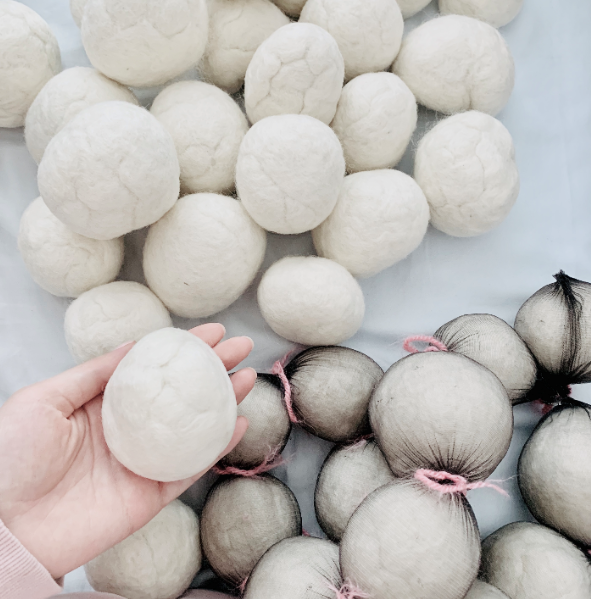
It is just as simple as tossing 1-2 dryer balls into the dryer each time when you dry your clothes, which can effectively shorten the drying time by more than 30% and reducing static clinging. Not only does it help reduce disposable wastes, it can be reused more than 2,000 times. Even when its lifecycle ends, natural wool is a degradable and compostable material that does not burden the environment.
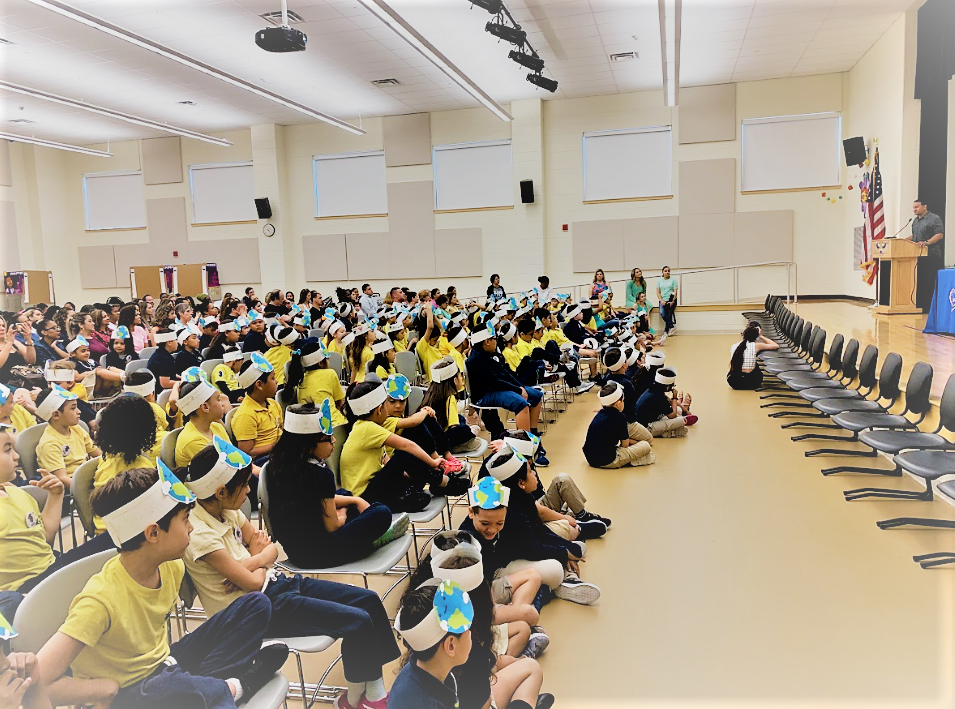
On June 7, 2019, the two organizations and schools cooperated to hold a graduation ceremony for this year's “Good Will Students for Peace—Green Lesson” graduates, in which all students and parents attended.
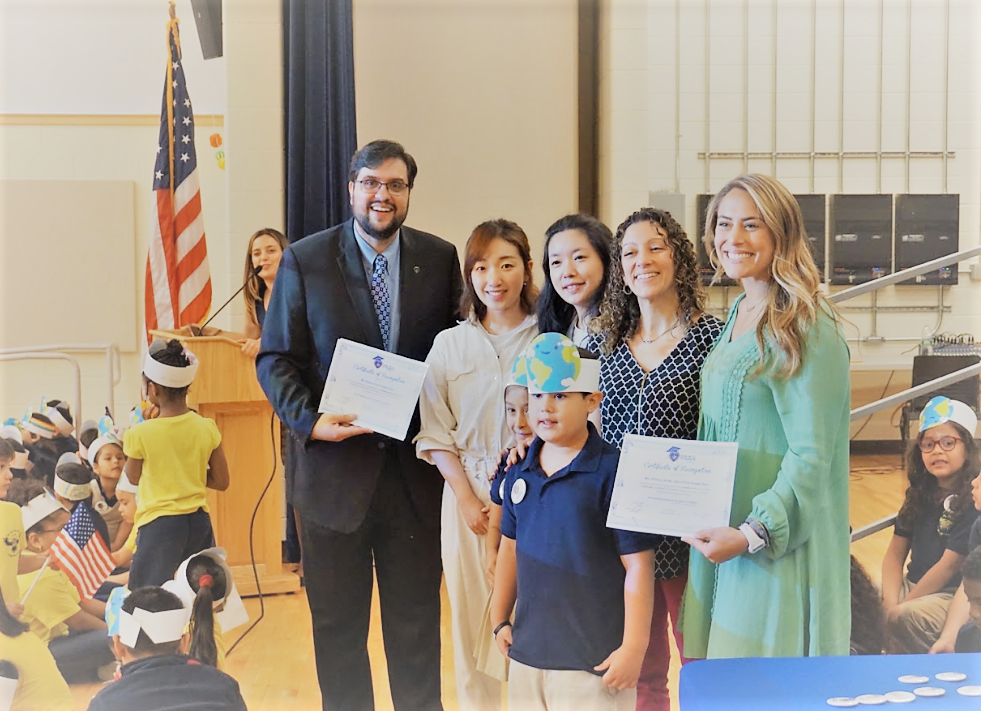
All the dryer balls were packaged together with an instruction card, sending along with the graduation diploma to each student and teacher who participated in this program.
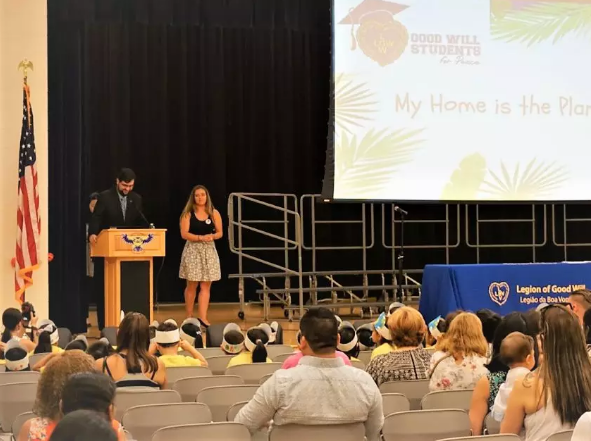
Danilo Parmegiani, CEO of Legion of Good Will, took the lead on the opening speech, thanking the school, encouraging every student, and introducing the LGW’s historical education program. Especially with the collaboration of WHAO this year, expanded and strengthened the reach and depth of the program.
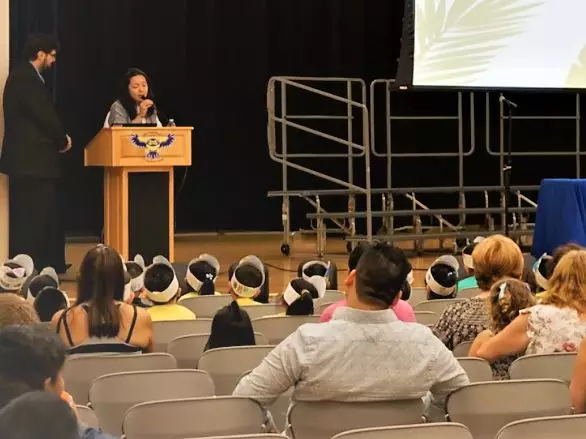
Secondly, Bina Wong, WHAO's CEO, spoke on behalf of WHAO and expressed his sincere gratitude to the school and the cooperative organization. She gave a speech and introduced the original initiatives and visions of WHAO.
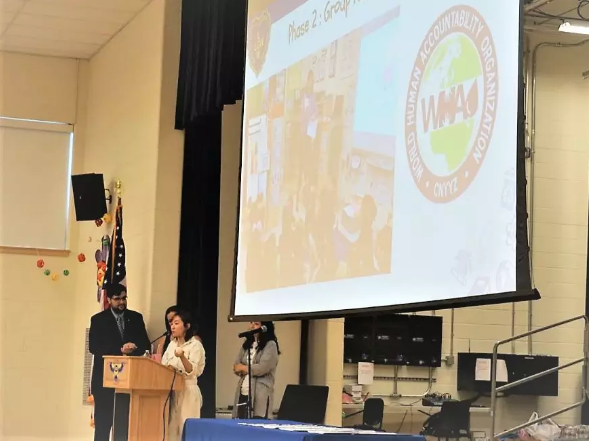
Finally, Sara Dong, teacher of the green lesson and project manager of WHAO, explained to parents the implications of the green lesson, the use of natural wool dryer balls, and their health benefits to our bodies and the environment. At the end of her speech, Sara once again emphasized “You are the most important natural resource,” she added, “Please remember to always ask if your behavior is green (sustainable). Together, we can take care of our only home. As the end of this Green Lesson, I wish you a beginning to a green future." For closing remarks, Sara reemphasized the many ways we can take care of the environment and earth.
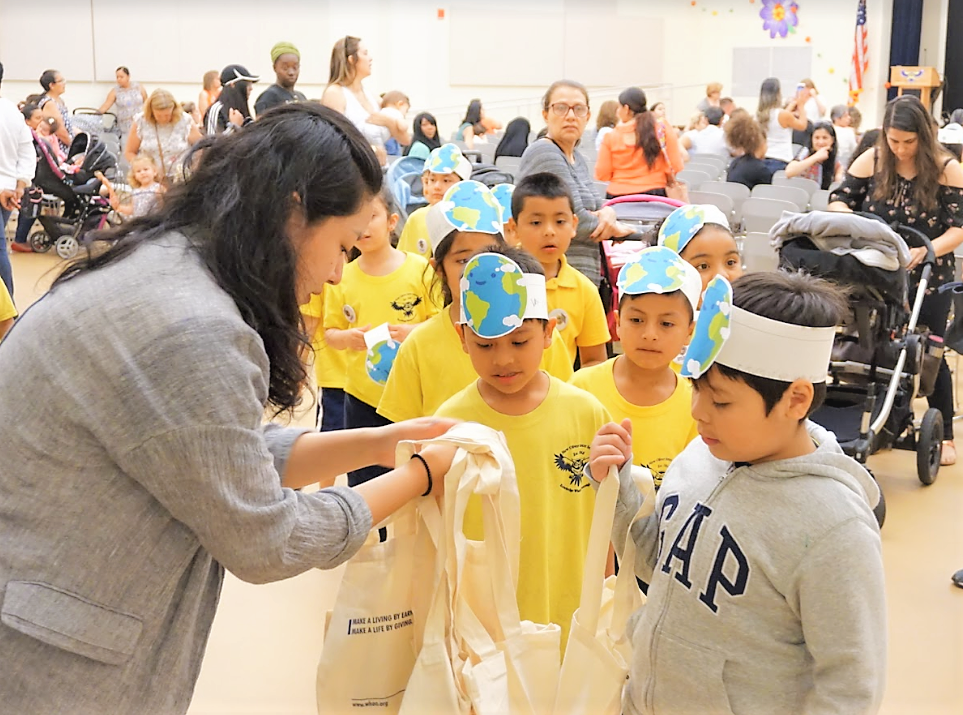
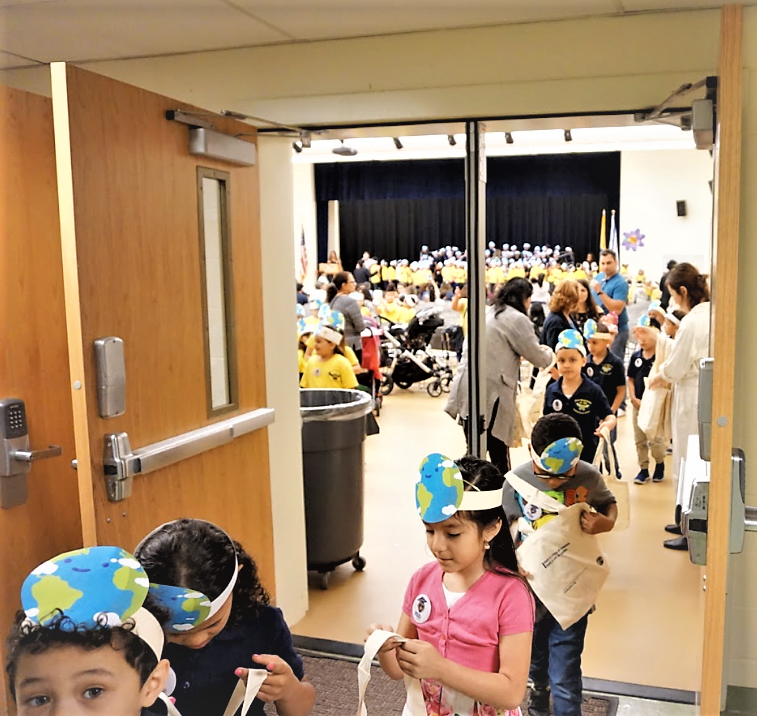
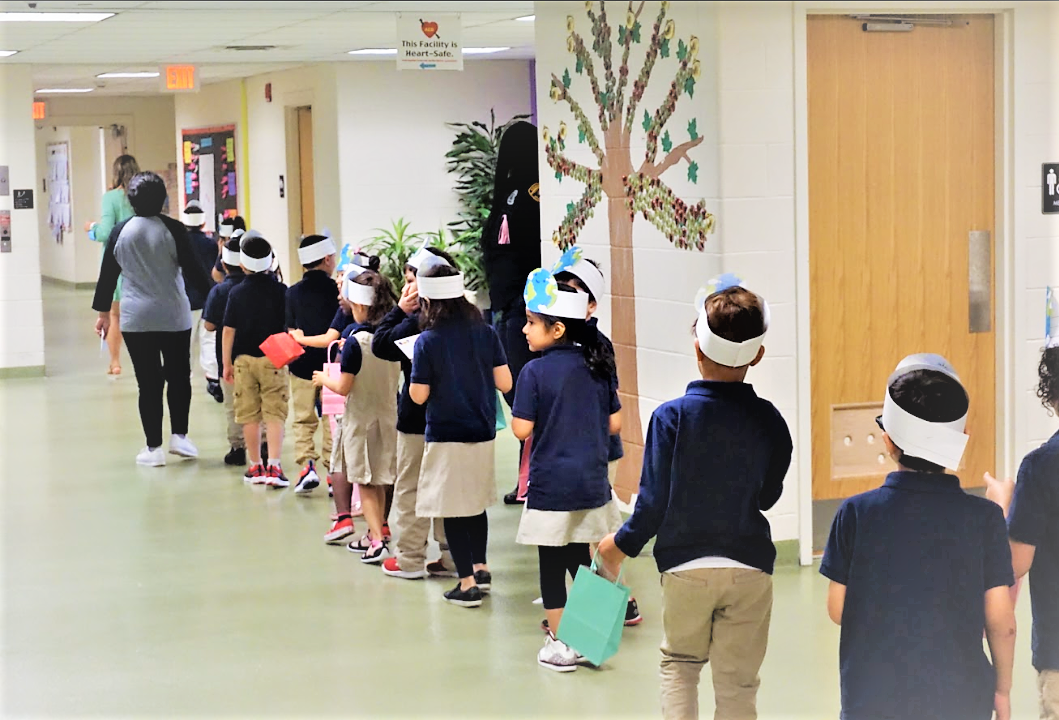
WHAO is excited and honored to have the opportunity to offer these lessons to Oliver St. School and the greater New York region. As a non-profit organization, we’re committed to providing equality in education, relief in poverty, and promote environmental sustainability. WHAO is dedicated towards building a better tomorrow, with you together!
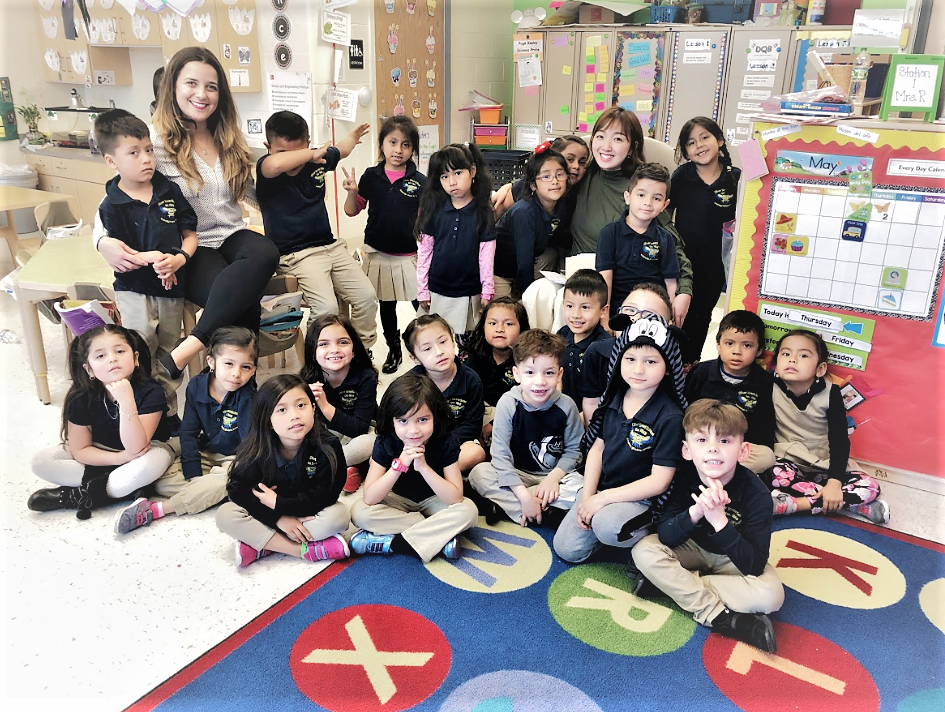
(Video Produced by Legion Of Good Will)
“ Dedicated towards building a better tomorrow ”